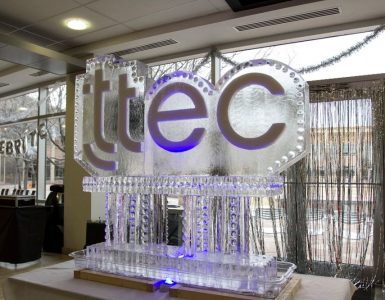The largest customer-experience outsourcers in the world are betting big on artificial intelligence as a game-changer for the service economy, however recent earnings calls show the sector is continuing to navigate a landscape between promise and pressure.
The narrative was surprisingly consistent. Clients are eager for AI, but the returns are slow, and profit margins are feeling the strain of this transformation.
Early Wins, Slower Payoffs
Accenture Chair and CEO Julie Sweet characterized the scale of the company’s overhaul as historic. In the company’s fiscal-2025 earnings call, she highlighted $69.7 billion in revenue while still emphasizing that the true story lies in a shift toward advanced AI.
“We have worked on more than 6,000 advanced AI projects just this year,” Sweet said. “By definition, every new wave of technology has a time where you have to train and retool. Accenture’s core competency is to do that at scale.”
The company has trained over half a million employees in generative-AI fundamentals, expecting that AI work will underpin nearly every large transformation deal moving forward. “Advanced AI is becoming a part of everything we do,” she said.
Still, she was careful to temper the excitement. Sweet acknowledged the challenges of early adoption.
“It is very early innings, however you look at it,” she noted. “It is well recognized that advanced AI has taken the mindshare of CEOs faster than any technology development we’ve seen in the past two decades. At the same time, value realization has been underwhelming for many, and enterprise adoption at scale is slow other than with digital natives.”
Teleperformance Deputy CEO Thomas Mackenbrock echoed this blend of ambition and realism. The company reported 1.5% like-for-like growth in the third quarter and adjusted its 2025 guidance to between 1% and 2%. Mackenbrock framed the results as a sign of “resilience” under its Future Forward plan.
He mentioned that more than 400 new AI projects had been launched in the past nine months, including 150 in the last quarter, with nearly 200 clients already using the company’s FAB Assist platform.
“It is not an abstract concept,” Mackenbrock said. “We are deploying AI solutions on our client operations that drive outcomes.” One such deployment, FAB Collect, combines human collectors with “an autonomous AI voice agent for early collections.” He expressed optimism about accelerating solutions like FAB Collect as they move forward.
Efficiency and the Cost of Transformation
Executives throughout the industry painted efficiency as both a goal and a source of funding for new growth.
“AI absolutely boosts efficiency … those savings do not disappear,” Sweet asserted, rejecting the notion that automation would shrink Accenture’s market. She argued that AI is “expansionary, similar to every tech evolution we’ve been through.”
However, that optimism is not yet proven. For many outsourcers, the potential savings remain theoretical as wage inflation and investments in technology put pressure on margins. Teleperformance’s CFO Olivier Rigaudy said traditional customer-care work “is growing healthy and demonstrates strong momentum,” pointing out double-digit growth in AI-enabled back-office solutions.
“We have double-digit growth in back-office BPO solutions and AI-powered solutions everywhere across the region,” he said, although he noted profitability “is challenging to forecast on a monthly basis.”
Concentrix CEO Chris Caldwell said transformation costs are an unavoidable reality as AI becomes increasingly important in operations. The company posted $2.48 billion in quarterly revenue, reflecting about a 4% increase, while still facing “near-term margin pressure from excess capacity and upfront AI-transformation costs.”
“We are transforming ourselves with the same technologies we deliver,” Caldwell said. “It’s about integrating AI into every layer of how we serve clients and how we run Concentrix.”
The company claimed 40% of new wins involve proprietary AI platforms like Hero for agent assistance and Hello for autonomous interactions.
Sweet mentioned to investors that the efficiency-growth cycle would define the next era of outsourcing.
“When we can save them money by delivering our services with advanced AI, that frees up their budget to do the next things on their list,” she said. “They’re always going to those next priorities, and we’re best positioned to help them.”
Human Plus Machine
Agile firms like TaskUs, which recently recorded one of the strongest organic growth rates in the sector, told investors AI Services grew 60.8% year over year.
Executives mentioned that TaskUs is reinvesting some of that growth into building “Agentic AI consulting” and automation tools that enable AI to handle routine tasks, while human agents focus on the more complex ones.
Leaders across all four firms were careful to keep the human element in focus. Mackenbrock described Teleperformance’s future as “a combination of agentic AI driving outcomes while combining it with the human ingenuity and the human competence that we have in the organization.”
That theme — human plus machine, not human versus machine — has become the industry’s most important message as it sells the AI revolution.
Sweet captured the mood.
“Helping clients with all of this work is what is driving our growth, and our pipeline of large-scale transformations continues to grow,” she said.
Mackenbrock put it more simply.
“This is really the future of TP,” he said.







Add comment